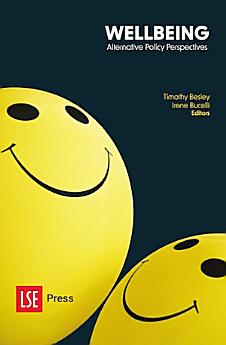Wellbeing: Alternative Policy Perspectives
About this ebook
The radical implications of this stance include shifting attention to previously neglected areas (such as mental health and ‘social infrastructure’ services) and developing defensible measures of overall wellbeing or quality of life indicators. Can one ‘master’ concept of wellbeing work to create more holism in policy-making? Or should we stick with multiple metrics? These debates have been live in relation to an alternative ‘capacities’ approaches, and they are well-developed in health policymaking. Most recently, the connections between wellbeing and political participation have come into sharper focus.
Wellbeing remains a contested concept, one that can be interpreted and used differently, with consequences for how it is incorporated into policy decisions. By bringing together scholars from economics, psychology and behavioural science, philosophy and political science, the authors explore how different disciplinary approaches can contribute to the study of wellbeing and how this can shape policy priorities.
About the author
Timothy Besley is School Professor of Economics of Political Science and W. Arthur Lewis Professor of Development Economics in the Department of Economics at the London School of Economics. He is also a member of the National Infrastructure Commission and, for 2018, is President of the Econometric Society. He is a Fellow of the Econometric Society and British Academy. He is also a Foreign Honorary Member of the American Economic Association and the American Academy of Arts and Sciences.
Irene Bucelli is a Research Officer at the LSE School of Public Policy and programme coordinator for the Beveridge 2.0: Redefining the Social Contract. She is also a Research Officer at the Centre for Analysis of Social Exclusion (LSE) where her research focuses on multidimensional inequality, poverty and deprivation.






